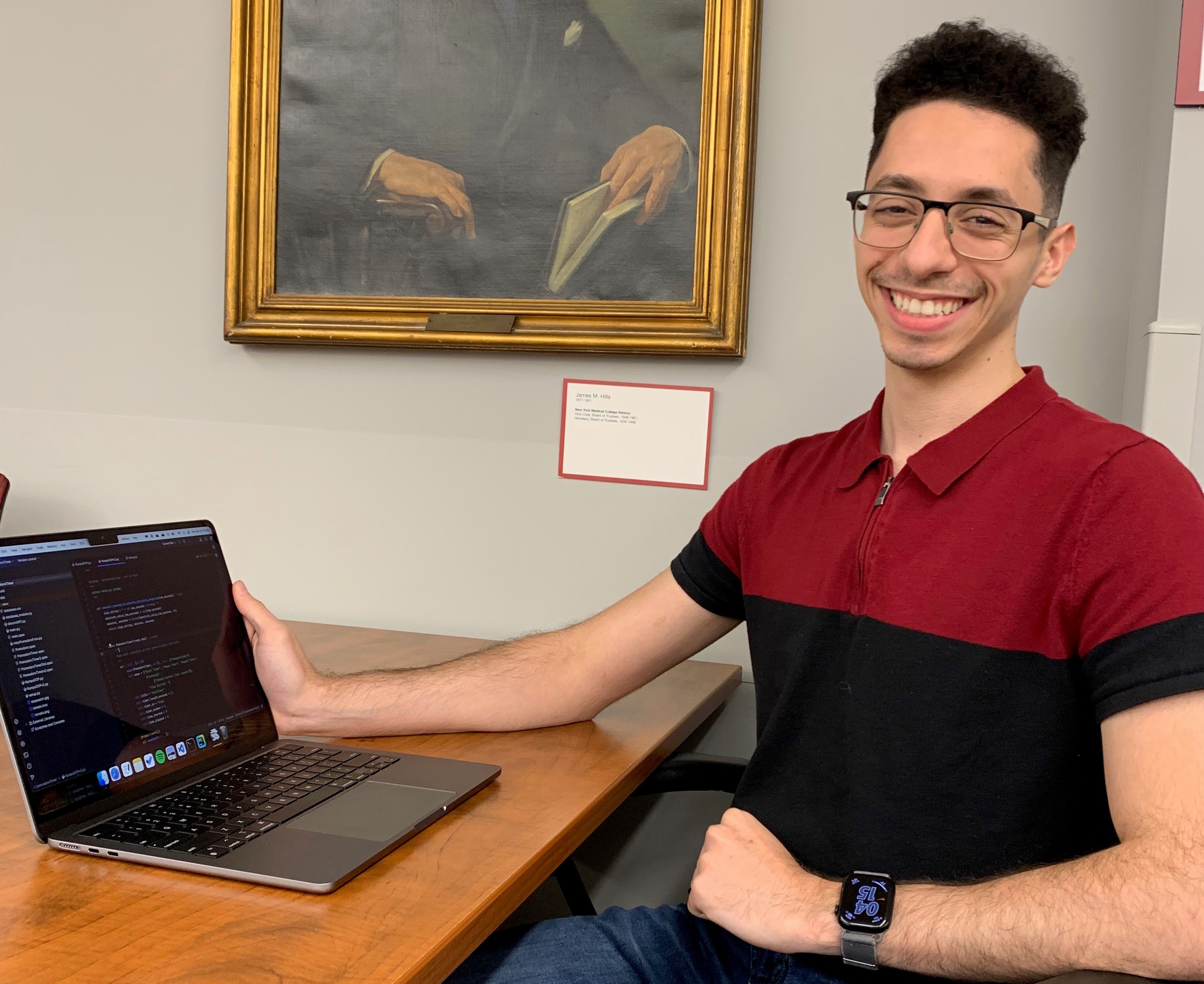
SOM Student Takes Second Place in International Neurosurgery Innovation Competition
Ahmed Kamhawy’s Prototype Would Streamline Health Care in Developing Countries By Increasing Accessibility and Improving Medical Record Accuracy

Ahmed Kamhawy, SOM Class of 2027, placed second out of 75 teams at the Mission: Brain Foundation Annual Global Virtual Hackathon in June for his prototype VibeCheck, an SMS-based data collection and history-taking tool connecting admitting physicians and follow-up providers. The system would streamline health care in developing countries by increasing accessibility and improving the accuracy of medical records.
“There is great opportunity in health care to increase efficiency and/or decrease burnout with simple software solutions,” says Kamhawy. “In almost every other sector, programmers work closely with users to optimize how their applications fit into their workflow, especially as the cost of user’s time increases. Unfortunately, in health care, there is a strong disconnect between programmers and providers that produces a significant economic and psychological burden. As someone with a programming background and as a first-generation Egyptian immigrant, I was motivated to join this competition to demonstrate this point while working on solutions for underserved African communities.”
Mission: Brain is a nonprofit organization that provides neurosurgical expertise and resources to patients, caregivers, and health care providers in underserved areas in low and middle-income countries. For the competition, Kamhawy collaborated as part of a three-member team, including two computer engineers, to develop the prototype VibeCheck that could be used in low-income countries, such as Sierra Leone, where hospitals rely on paper records, which are often incomplete and inaccessible. Through VibeCheck, providers would be able to text in using verified phone numbers to create a patient account and provide relevant patient information. This information would then be received by the VibeCheck database servers which would be able to process the information as if it were being received from a traditional electronic medical record or other internet-connected application and stored securely for future research and clinical use.
“An application such as ours which is specifically designed to be as efficient, unobtrusive, and low-cost as possible, would have the ability to make patient care truly longitudinal by empowering providers with accessible patient history, as well as reducing redundant testing, improving provider-to-provider communication, and engaging patients in their own care,” says Kamhawy.
While there are no active plans to continue the development of VibeCheck, Kamhawy is continuing to seek out ways to use his background to support projects with local hospitals to develop health care efficiency and quality-of-life tools with similar technology.

